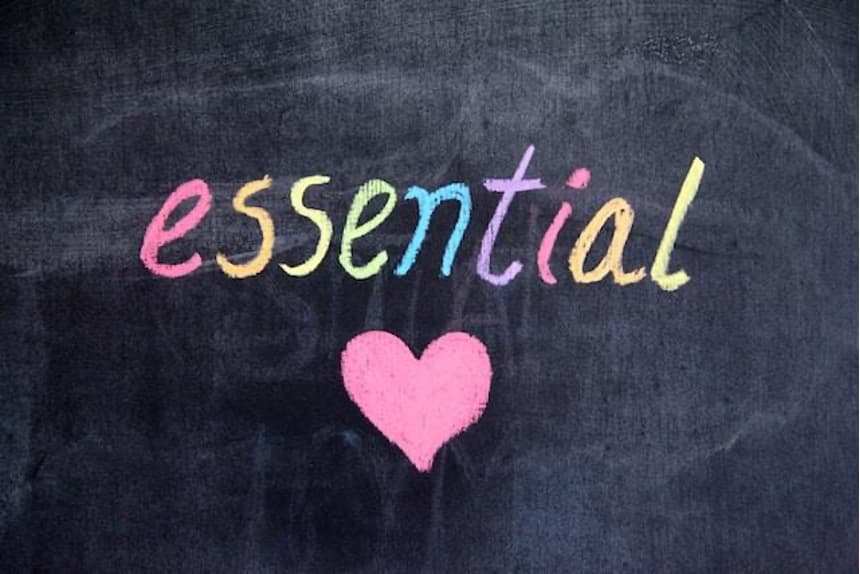Join our live online group lessons starting September 1! Sign up until August 22 here.
Days
Hours
Minutes
Join our live online group lessons starting September 1! Sign up until August 22 here.

So you’ve been learning Serbian for some time. You’re familiar with grammar, and your vocabulary bank isn’t bad either. Still, it’s not good enough. For some reason, you feel like your Serbian doesn’t sound natural. In addition to that, you often don’t understand things your Serbian friends say. After all, what you learn in textbooks isn’t always how people talk in real life. But, luckily there’s a simple solution. Learn some common Serbian phrases that native speakers use in everyday conversations.
So if you want your Serbian to sound more natural, here’s a list of 7 common Serbian phrases and how to use them.

Opušteno is used to express that there’s no reason for worry or stress. Also, you can use it to reassure someone that you’re not angry. For example, if your friend apologizes, you can reply with “opušteno.” But in different contexts, the meaning will vary. So, take a look at these examples:
You: Opušteno, i ja sam tek stigla. (No worries, I just got here too.)
You: Ma opušteno, naći ćeš boljeg. (Relax, you’ll find a better one.)
Or if you’re at work, and your boss has been stressing you out, say to yourself:
Although it seems like this phrase has a strong meaning, you can use it for serious and not-so-serious situations. If something terrible happens — katastrofa. If something mildly annoying occurs — katastrofa. Something you don’t care about happens? You guessed it. Katastrofa.
For example:
You: Katastrofa!!! Kako se to desilo? (Terrible!!! How did that happen?)
You: Katastrofa! Hoćeš aspirin? (Terrible! You want an aspirin?)
You: Katastrofa. (Terrible)
The last one is sarcastic; you might also roll your eyes to show how little you care.

Although the literal translation is “a bit tomorrow,” it has nothing to do with tomorrow. Unexpectedly, it means — nikad (never). Alternatively, it can mean that you don’t believe something is true. Since you usually use it sarcastically, it’s not a part of polite communication. In other words, never use it with your teacher, your boss, or when you first meet your in-laws.
How to use this phrase:
You: Malo sutra. (Never.)
You: Malo sutra. Svaki dan to kažeš. (Yeah, right. You say that every day.)
How not to use this phrase:
Boss: Molim? (Excuse me?) Marko: Evo me za 15 minuta. (I’ll be there in 15 minutes.)

Have you ever seen a Serb frantically look for any wooden item and then knock on it with relief? What in the world is that?
Well, it turns out that Serbian people are pretty superstitious, so if they say something positive, they need to knock on wood to drive away the bad luck. The complete phrase is “da kucnem u drvo da ne čuje zlo” (knock on wood so the evil forces don’t hear it). In most cases, it’s accompanied by the actual act of knocking on any available wooden item. So, when to use it? Anytime you say anything good or pay someone a compliment.
It sounds weird, but here are two examples:
You: Odlično, da kucnem u drvo. (Great, knock on the wood.)

Prosto k’o pasulj? Simple as beans? This phrase is not about vegetables or dinner. Surprisingly, it simply means — a piece of cake. Whenever you want to say that something’s not complicated at all, this is the phrase.
For example:
You: Prosto k’o pasulj. Dobio sam desetku. (A piece of cake. I got an A.)
This one’s a perfect phrase for all the risk-takers out there. You can use it whenever you’re determined to do something despite not knowing the outcome. Namely, it implies you’re aware of the danger but still willing to take the risk. Whether you want to ask your crush out on a date or ask your boss for a raise, this is the ideal phrase.
For example:
Despite the literal meaning (my ear hurts), this phrase has nothing to do with medical issues. So if you hear someone say: “Boli me uvo,” don’t tell them to see a doctor. It just means they don’t care. But make sure to only use this expression in very informal situations. In kafana with your friends — go ahead. During a business meeting — no way!
For example:
You: Boli me uvo. Neka pokisnem. (I don’t care. I don’t mind getting wet.)
And if you want to say you don’t care about anything:
Of course, learning common Serbian phrases will bring you one step closer to speaking Serbian like a native. By learning these everyday expressions, you’ll become a confident speaker, and you’ll also be able to understand real-life conversations. So, try to memorize them and try to come up with your own examples.
Still, this is by no means a complete list. So, if you wish to learn more fun and practical Serbian phrases, book a 1:1 lesson and learn how to speak like a native!